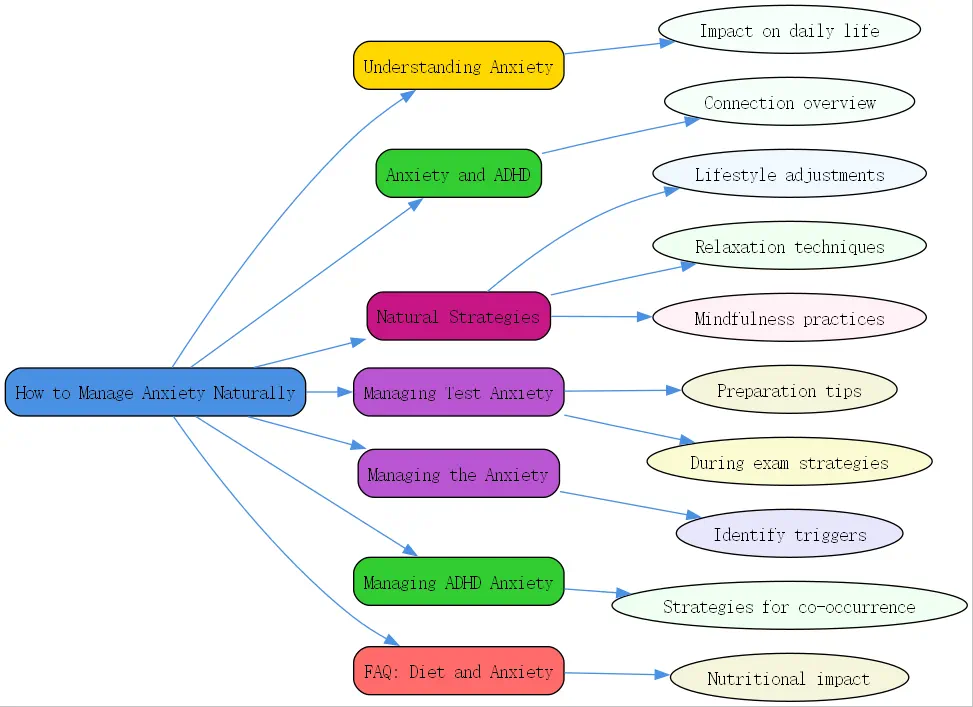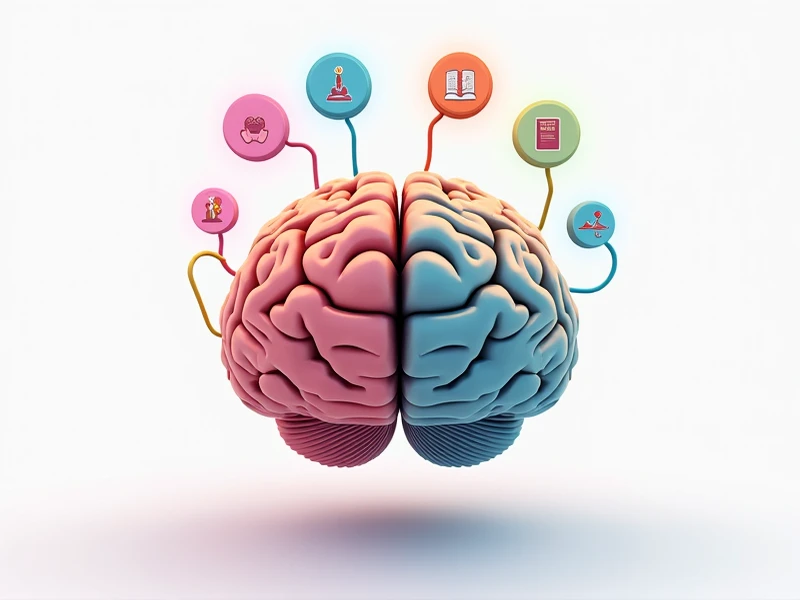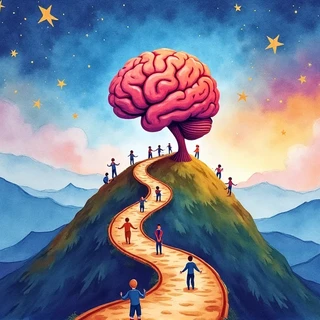How to Manage Anxiety Naturally: A Comprehensive Guide

Understanding Anxiety and Its Impact
Anxiety is often seen simply as worry but extends much deeper. It is a complex physiological response to perceived threats or excessive worry. Stress hormones like adrenaline and cortisol spike during anxiety, causing symptoms that affect the entire body. These can include increased heart rate, sweating, and rapid breathing.
Defining Anxiety: More than Just Worry Anxiety is not just mental; it manifests physically. Understanding this can assist in recognizing and treating anxiety not just as a feeling, but as a holistic experience that requires both psychological and physical attention.
The Physiological Response: How Anxiety Affects the Body When discussing how to manage anxiety naturally, it’s crucial to understand how it physically alters our body. This understanding can lead to targeted approaches to calm these physiological reactions.
Common Anxiety Triggers and Root Causes Triggers are very personal, but common ones include health issues, financial concerns, or big changes in life. Understanding personal triggers is a step towards managing anxiety by either avoiding these triggers or preparing to deal with them effectively.
Anxiety and ADHD: Understanding the Connection
ADHD isn’t just about having trouble keeping still; it affects how we process and respond to information and stress, which in turn impacts anxiety levels.
ADHD Defined: Beyond Hyperactivity Beyond the visible hyperactivity, ADHD affects attention and impulsivity, factors that could heighten anxiety when one feels out of control or unable to focus.
The Different Types of ADHD: Hyperactive, Inattentive, and Combined Each type affects individuals differently but can connect to anxiety by hindering one’s ability to manage day-to-day stress and tasks, thus feeding into a cycle of anxiety.
How ADHD Contributes to Anxiety: The Role of Executive Function Impairments in executive function, common in ADHD, affect organization and emotional regulation, contributing significantly to anxiety levels.

Natural Strategies for Managing Anxiety
Given its impact, finding natural ways to manage anxiety is crucial for many.
Lifestyle Adjustments for Anxiety Relief Simple changes such as a regular exercise regime, a balanced diet, and sufficient sleep can significantly reduce anxiety levels.
Mindfulness and Meditation Techniques Activities that promote presence and mindfulness can help regulate the body’s stress response and foster a calm mind.
The Importance of Executive Function Skills Improving executive function can help manage anxiety by allowing better planning and emotional regulation.
How to Manage Test Anxiety
Test Anxiety: What it is and how it manifests It’s a specific type of anxiety that fills one with dread during tests, affecting performance.

How to prepare well ahead of time Thorough preparation can alleviate some of the stress related to unpredictability.
What to do during the test Simple techniques like deep breathing and focusing on one question at a time can help keep test anxiety at bay.
How to Manage the Anxiety
Identifying the root causes of anxiety Know what specifically triggers your anxiety. This insight is fundamental in addressing the root instead of just the symptoms.
Coping Mechanisms and Relaxation Techniques Methods such as yoga, deep breathing exercises, and guided imagery can help manage acute anxiety episodes.
Seeking Professional Help and Support Sometimes, professional counseling or therapy is required to manage chronic anxiety, and there’s strength in seeking help.
How to Manage ADHD Anxiety
Understanding the Link Between ADHD and Anxiety Recognizing how ADHD exacerbates anxiety can guide more tailored treatment strategies.
Strategies for Managing Anxiety Symptoms Related to ADHD Behavioral modifications, alongside techniques to enhance focus and reduce impulsivity, can reduce anxiety.
Medication and Therapy Options for ADHD Anxiety While natural methods are crucial, medication and professional therapy hold significant benefits for those with severe ADHD-related anxiety.
FAQ Section: How Can Diet Impact Anxiety?
Q: Can what I eat really help manage my anxiety? A: Absolutely. A balanced diet rich in vegetables, fruits, lean proteins, and whole grains can improve brain health and reduce anxiety symptoms. Foods rich in omega-3 fatty acids, like salmon and flaxseeds, are particularly effective as they help regulate neurotransmitters and reduce inflammation.




